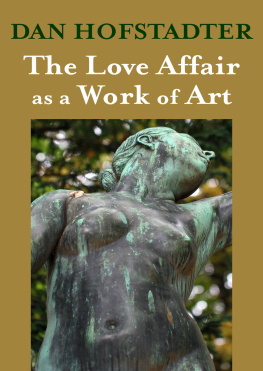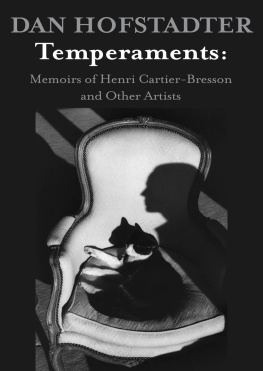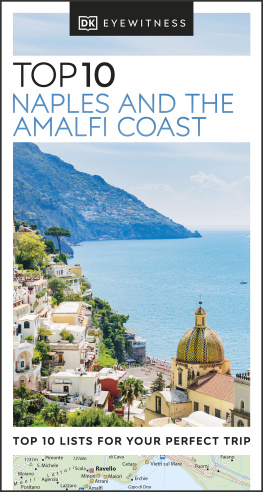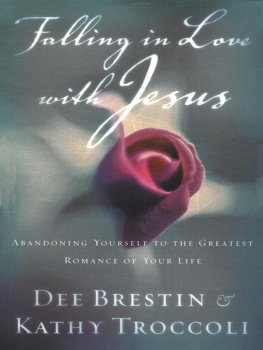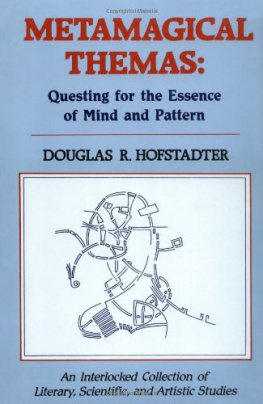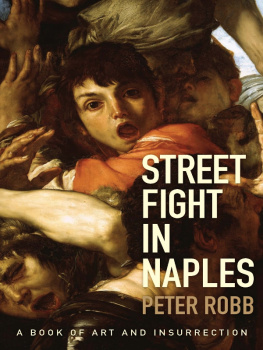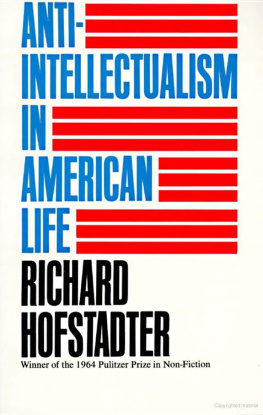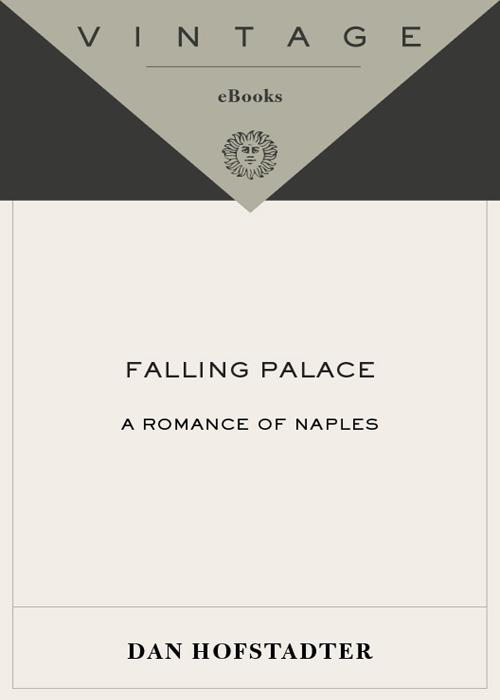Dan Hofstadter is the author of three previous books. His most recent, The Love Affair as a Work of Art, a collection of essays on French writers, was nominated for a National Book Critics Circle Award. He has written for most national magazines and was for eight years a regular contributor to The New Yorker. He lives in the Hudson River Valley area of New York.
PROLOGUE
Falling Asleep in the City
W henever, after a long absence, I return to Naples, that beautiful and wounded city, I find myself looking forward to bedtime, to the first few moments of falling asleep. I always stay in one of the more populous quarters, in a room overlooking a steep, narrow street, and as I throw open my window a vast wave of sound floods over me. Settled in bed, I'm disconcerted at first by the sheer volume, by my feeling of floating helplessly in a tide of half-drowned voices, people calling or quarreling, snatches of jokes, television commercials, soccer games, ghosts of song twisted by the wind; footfalls mingle with rasping scooters, a baby's crying with the honking of horns. Yet soon the noises soothe me, and suspended between wakefulness and sleep I enjoy a sensation of homecoming, of rejoining a crowd of kindred spirits, faces I have always known. The sounds summon up mental pictures, and in my mind's eye I can see the oneway street beneath my window, I can see the hassi, those tiny street-level flats, with their open windows and monumental, tomblike beds, and gold-embossed icons of the Madonna. I can see the old ladies gossiping in chairs along the sidewalk and the kids revving up their bikes at the corner, I can see the circolo sociale where grizzled gents play scala under a neon strip, smoking, coughing, trading affectionate insults.
Naples is one of the world's noisiest cities, yet by night those noises form a pillow of sound. They relieve me of a childhood fear, reassure me that in some sense I never sleep alone. In Naples sleep is crowded, full of faces, gestures, winks, and warningsI feel that I drowse in a room packed with people. Yet only after I'd lived in Naples for the better part of a year did it occur to me that to be half asleep here, half exposed to a world of wanton fantasy, was to be perfectly in tune with the city's truest nature. For Naples was, and, I believe, remains, a place best or perhaps only grasped through myth and memory and half-remembered dream.
When I first came to Naples, alone, in my late teens, I felt as though I'd seen it before. Not all of it, of course, but certain pockets around the cathedral and the northwest quadrant. I had the sensation that I was visiting a place I had once dreamed about, and maybe I was, though a less fanciful explanation suggested itself. A few years earlier, I had been rescued from a charmless childhood by a band of friends, New Yorkers like myself, some of whom, for family reasons, spoke Italian fluently. There was a girl I liked, her flaxen-haired twin sister, a boy who played the guitar like an angeland there were others. Those evenings spent in pizzerias or cheap restaurants, those walks along dark streets lined with salami shops and bridal stores, mom-and-pop bakeries, newsstands selling Oggi or GenteI felt them returning whenever I strolled around Naples. My contentment grew partly from a sense of deliverance, and partlymore viscerallyfrom a sense of acceptance. Not that Naples was purely beautiful or welcoming it was also dirty and devious. Yet I recall feeling flattered by the kindness of strangers. Young men of my age would guide me through casbah-like neighborhoods, refusing a tip. Giggling girls with glazed hair would sit close to me on hideous sofas, trying to pronounce my name. And workers I passed in the street would casually offer me part of their lunch, which was hard to decline, considering how appetizing it looked. When I discovered, around the church of Materdei, an especially congenial neighborhood, apparently untouched by the uglier sort of modern construction, it seemed that an entire civilization was proposing to take me in.
Often I'd walk there just before nightfall, when the wall shrines with their statuettes and electric candles and plastic flowers bloomed out of the gathering darkness. I passed the butcher and the wine merchant, the local headquarters of the Communist Party the man on the corner who talked to himself. I glanced down alleys at half-derelict palazzi, and peeked into courtyards where one wistful palm curved into the sky. Often I'd smell a pot ofgenovese, the ambrosial Neapolitan sauce (quite foreign to Genoa, despite the name) made with beef and onions and white wine simmered for half a day I peered into the windows of minuscule shops that sold buttons or notions or children's underwear, shops as cozy as a mother's lap.
Looking back through the haze of the years, I think it was actually the crowdedness of Naples that seduced me. The city clasped me in a warm, maternal, slightly musty embrace. I remember that during one of my many later sojourns, I tried explaining this to Benedetta. I tried telling her that the sheer close-packing of people and objects delighted mehow every street and piazza was so amazingly congested, so wildly overstocked with physical and emotional inventory. I had felt this in a reliquary chapel contrived like a chest of drawers, each bearing a tiny bronze bust of the bishop whose ashes it contained; and again when I saw the bridal stores beside the cathedral, with their tempests of tulle and white lace; and yet again in a


